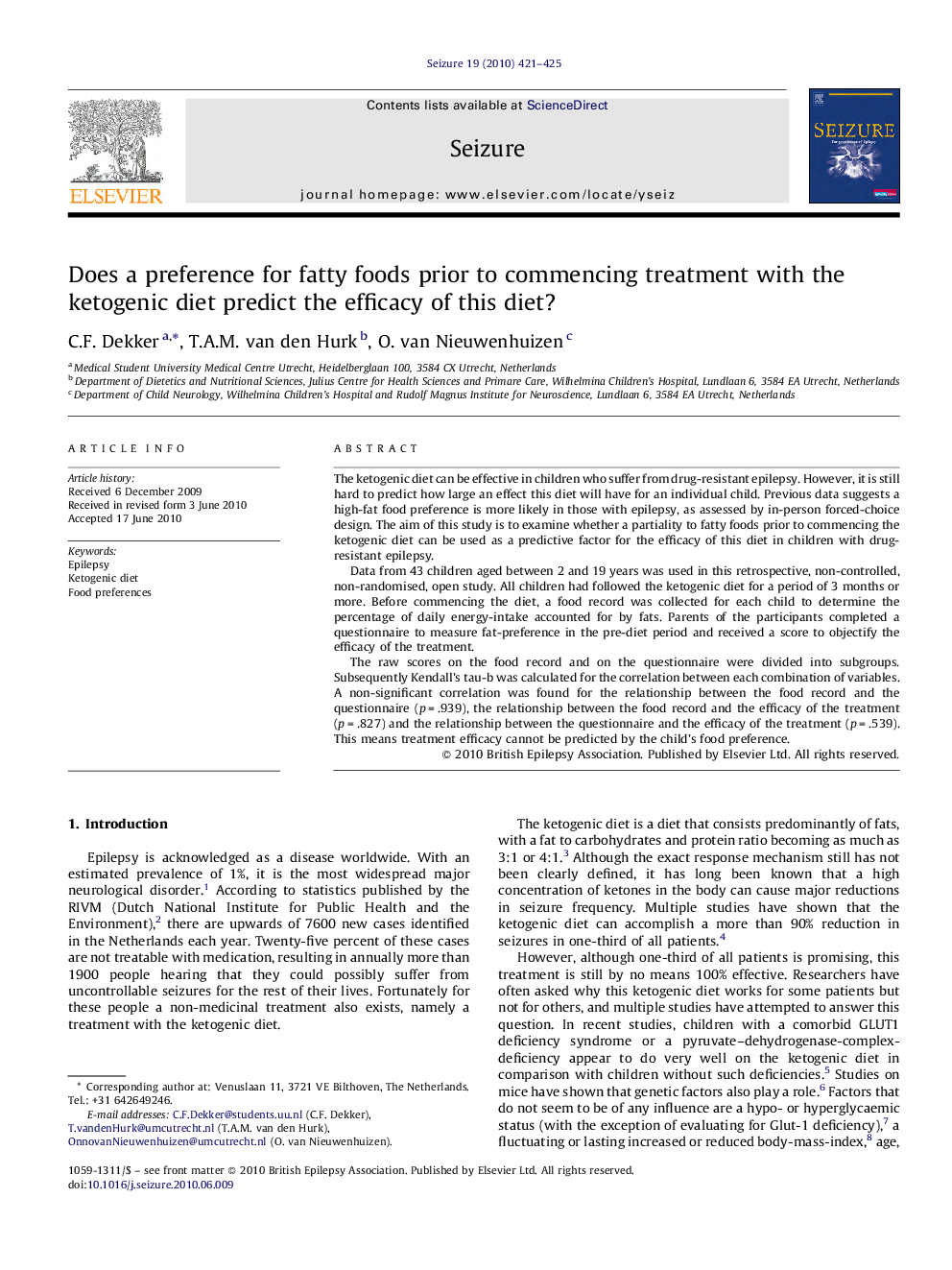| Article ID | Journal | Published Year | Pages | File Type |
|---|---|---|---|---|
| 342169 | Seizure | 2010 | 5 Pages |
The ketogenic diet can be effective in children who suffer from drug-resistant epilepsy. However, it is still hard to predict how large an effect this diet will have for an individual child. Previous data suggests a high-fat food preference is more likely in those with epilepsy, as assessed by in-person forced-choice design. The aim of this study is to examine whether a partiality to fatty foods prior to commencing the ketogenic diet can be used as a predictive factor for the efficacy of this diet in children with drug-resistant epilepsy.Data from 43 children aged between 2 and 19 years was used in this retrospective, non-controlled, non-randomised, open study. All children had followed the ketogenic diet for a period of 3 months or more. Before commencing the diet, a food record was collected for each child to determine the percentage of daily energy-intake accounted for by fats. Parents of the participants completed a questionnaire to measure fat-preference in the pre-diet period and received a score to objectify the efficacy of the treatment.The raw scores on the food record and on the questionnaire were divided into subgroups. Subsequently Kendall's tau-b was calculated for the correlation between each combination of variables. A non-significant correlation was found for the relationship between the food record and the questionnaire (p = .939), the relationship between the food record and the efficacy of the treatment (p = .827) and the relationship between the questionnaire and the efficacy of the treatment (p = .539). This means treatment efficacy cannot be predicted by the child's food preference.
